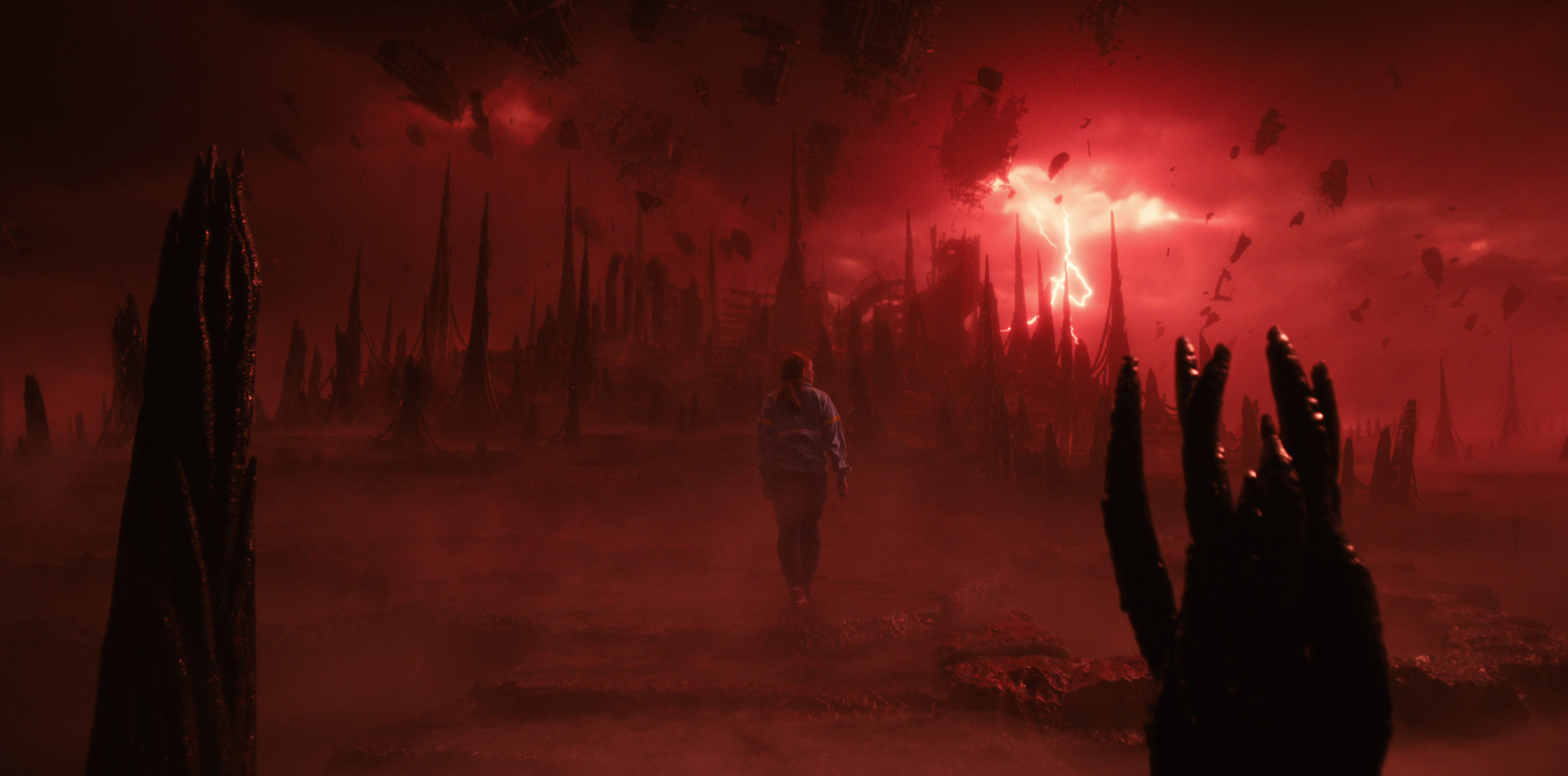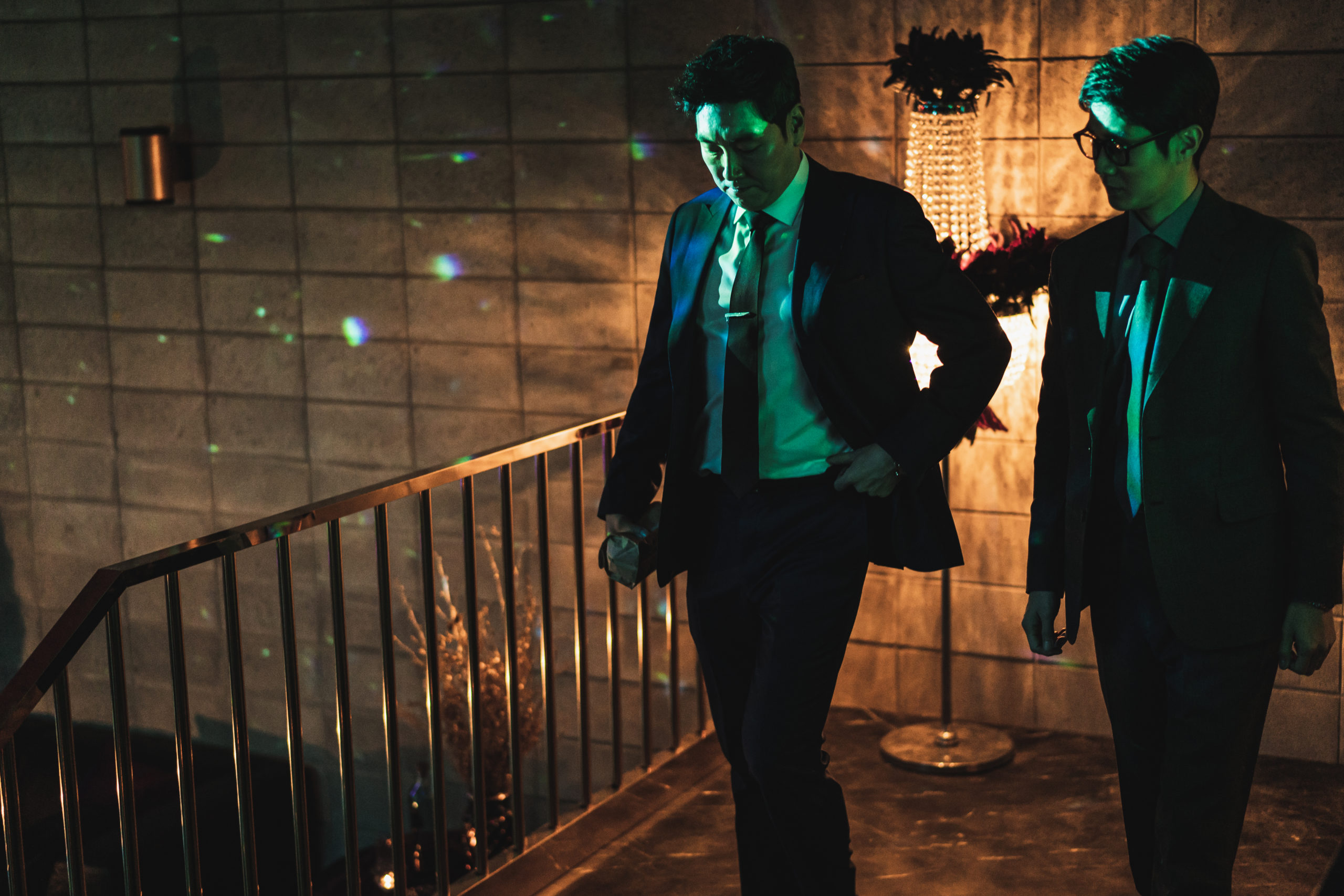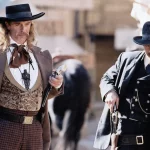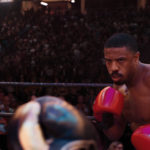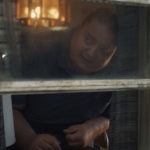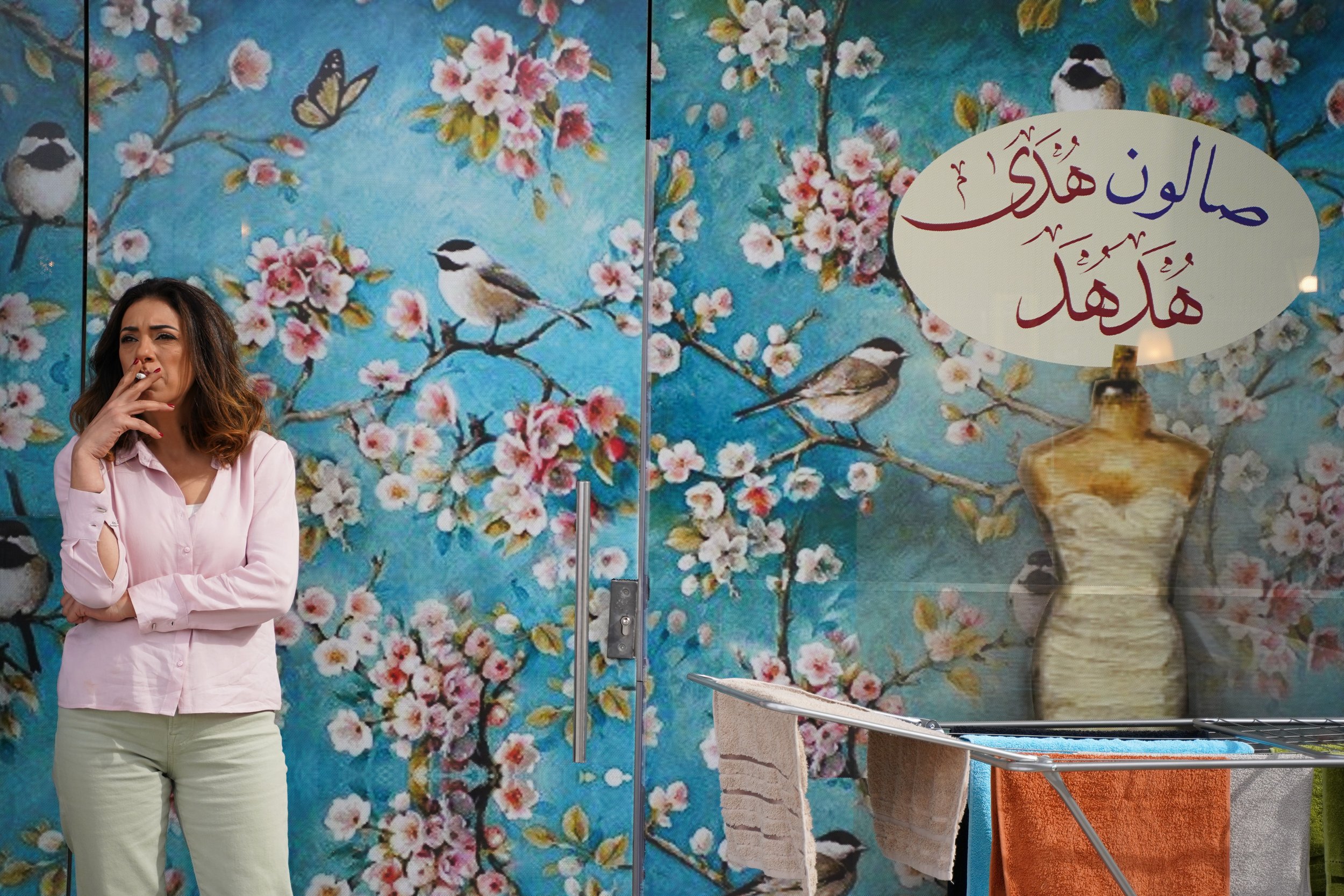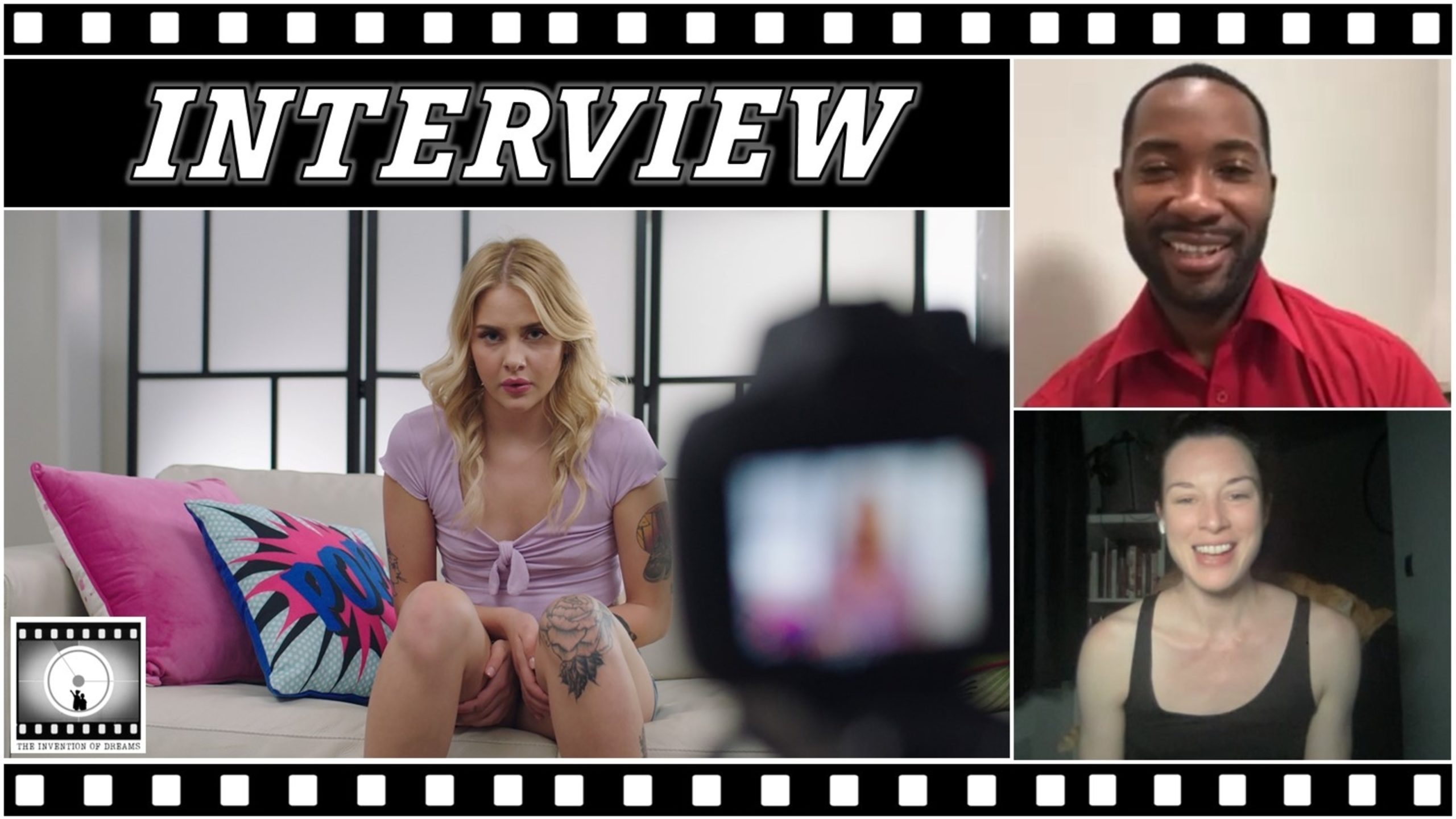
A day is nothing more than a ticking time bomb in the slice-of-dreadful life drama La Haine. In 1990s riot-torn France, tensions between police and those they’ve sworn to protect are high after a brutal night of protests, riots, and looting. We are shepherded on our journey by Vinz, Saïd, and Hubert, each with a motive, each with once-bright eyes dullened by the horrors they’ve beheld. La Haine is a lauded work of art already, a relic of an era that seems to repeat itself time and time again, with no end in sight. Its message is clear and bold, resonant and empathetic, but also dark and disturbing. It holds a mirror up to the ever-twisting camera and shows civilization what it really is, what it has become. What is ‘civil’ in times as such? The film begins with a story about a man falling to his death. As he falls to his impending doom, he repeats to himself “so far so good…so far so good.” because it isn’t how you fall that matters, it’s how you land.
Even today, nearly thirty-years after the film’s inception, we’re still falling. At this point, we don’t even have legs anymore. How are we supposed to land without legs? Will we land? Will we survive? Will it hurt? Will it be quick? Quick and painless, or slow and grueling? We’ve already jumped, there’s no backing out. We’ve creeped ourselves into a corner inescapable by complacency. Action, at this point, isn’t a prerogative, but a necessity if we hope to make it out in one piece. However, is it facetious to ask if there’s any hope anymore? Is there any time left? Some have already given up. Some welcome death hoping it’s quick and painless. The path to social redemption is in unity, and God forbid we unify. Cynicism is understandable, and sometimes easier to swallow than optimism.
I’ve heard La Haine described as a powder-keg. I think this is a good way to describe it. The plot progresses through the hours in a day, marching towards inevitable ignition. I think the world we’ve created is a powder-keg. Maybe it always has been, maybe it always will be. Does it have to be, though? Do we have to breathe a sigh of relief every time a day passes without the keg igniting, blowing us all into dust? Some would say the keg ignites every day, only to be replaced by another the day after. I would say that, however, only sometimes.
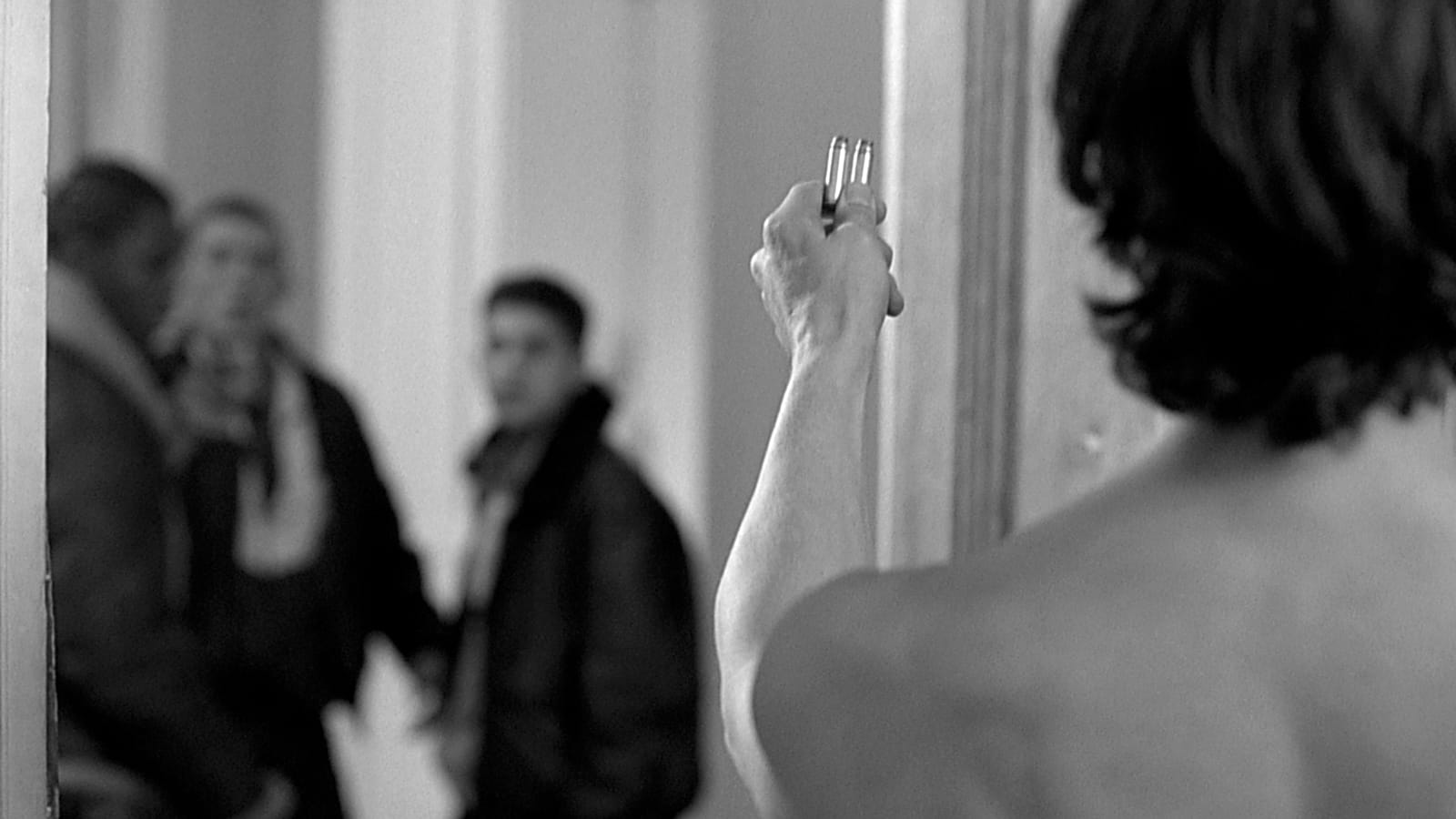
The moral of La Haine is that hate breeds hate. It’s an endless cycle. It seems everything bad is an endless cycle, whereas everything good only lasts for sometimes. Is there a way to break an endless cycle? Or is it so ingrained into who we are, who we’ve become, that it’s against our nature to go another way? These days, the words dystopia and reality are interchangeable. They’ve become one and the same. I’d go as far as to say dystopia is a useless word, because how much worse could it get? Maybe I shouldn’t jinx it. To watch a movie like La Haine, made thirty years ago, and think “crazy how relevant this is today” is tragic, it’s something that shouldn’t happen, yet it does all the same.
La Haine is a clash of dogmas and doctrines. Hubert acts as the voice of reason, a vessel for those on the outside-looking-in (or, in other words, the audience), nudging Vinz towards the high road, towards the good ending. He is an optimist, a seeker of something bigger and better, or rather, a believer of something bigger and better. Vinz is content with the reality of the world around him. He aims not to solve it, but to force it towards a more habitable future; not to nudge it, but to shove it. They influence nothing, floating through the hours of a day like a child lost in the tide of the ocean (an over polluted ocean at that), and the ocean does what it wants, stopping for no one and nothing in its flow. The difference between them is that Vinz rioted, looted, and partook in the chaos of the previous night. As far as we know, Hubert removed himself from all of that. It isn’t until the conclusion of ‘La Haine’, in the awe-inspiringly poignant final scene of the film, where Hubert is confronted with the truth of the struggle. The battle of said dogmas and doctrines ceases and all that matters is what is seen.
A struggle, the point of a gun, a taunting chuckle…POP.
The truth is oftentimes disappointing, scary, and angering. It leads not only to pain, but to the quest of vengeance. The high road is a road not often taken not because it’s the wrong way, but because it’s the path harder to find.
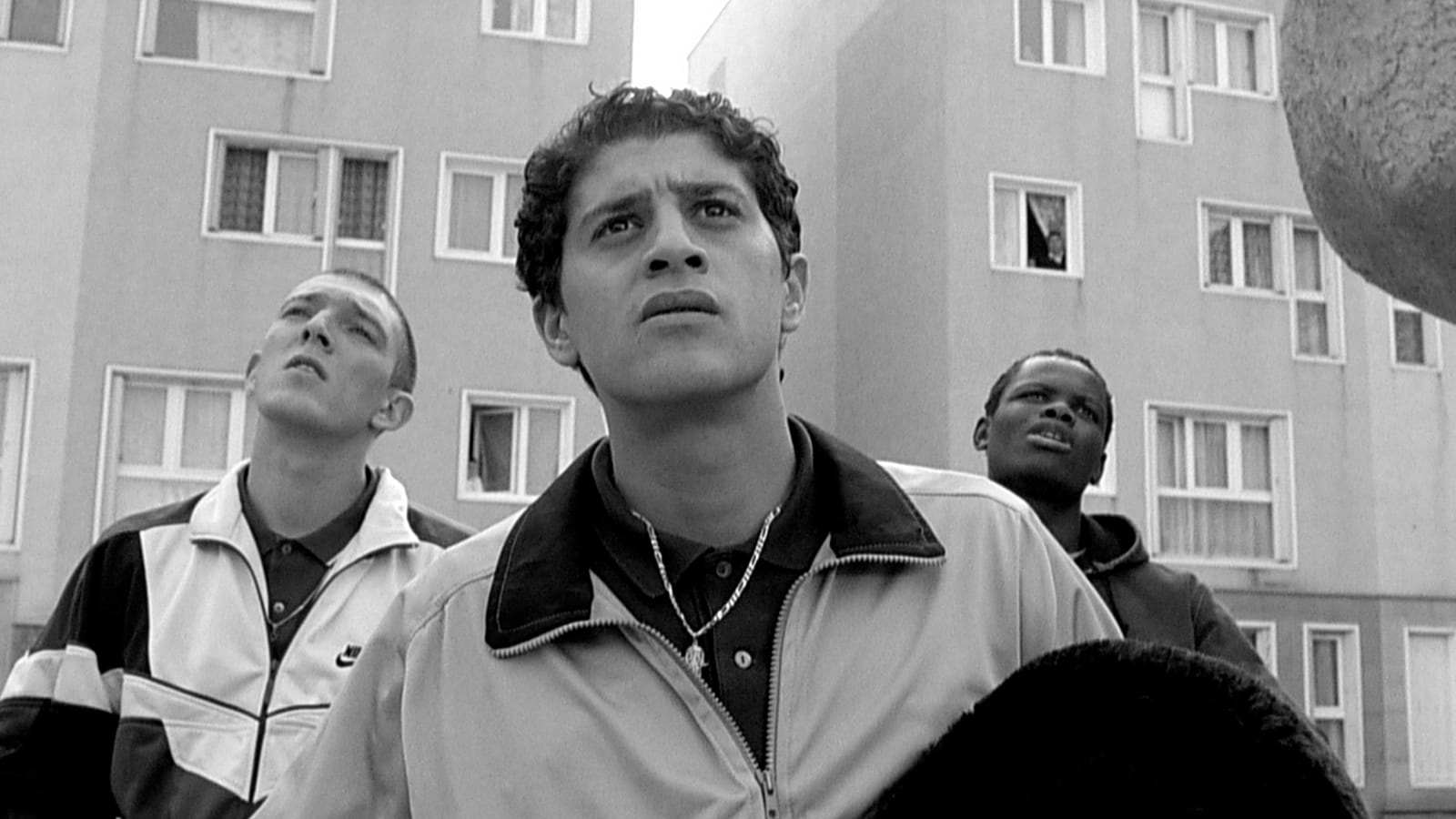
In the dead of night, a fork divides from a single lane into a pair. While the road to the left is lined with the comfort of brightly shining streetlights, the road to the right continues into the distance of ambiguity with no such benefit. In a world with no GPS, which leads home? It’s dark and late, and there’s mysteriously no sense of direction in such a place. In the reality we’re faced with, it’s becoming ever so difficult to trust the direction darkly-lit, when time and time again forces unbeknownst to us keep shoving us towards the path brightly lit. In times of uncertainty, the path less certain is the one oftentimes dismissed. Uncertainty incites fear, comfort alleviates fear, certainty brings comfort. Turning off the lights makes the scary movie scarier.
The best art is art that asks. Most of the time, art asks and answers too, like a gift wrapped nicely with a bow. However, in a case such as this, there is no bow, nor should there be. La Haine isn’t a gift, but a warning; a powder-keg. It is a cry for help that has gone unanswered.
It is a society falling, and on the way down it keeps telling itself “so far so good, so far so good, so far so good”. How you fall doesn’t matter, it’s how you land.

La Haine is available on The Criterion Channel.



